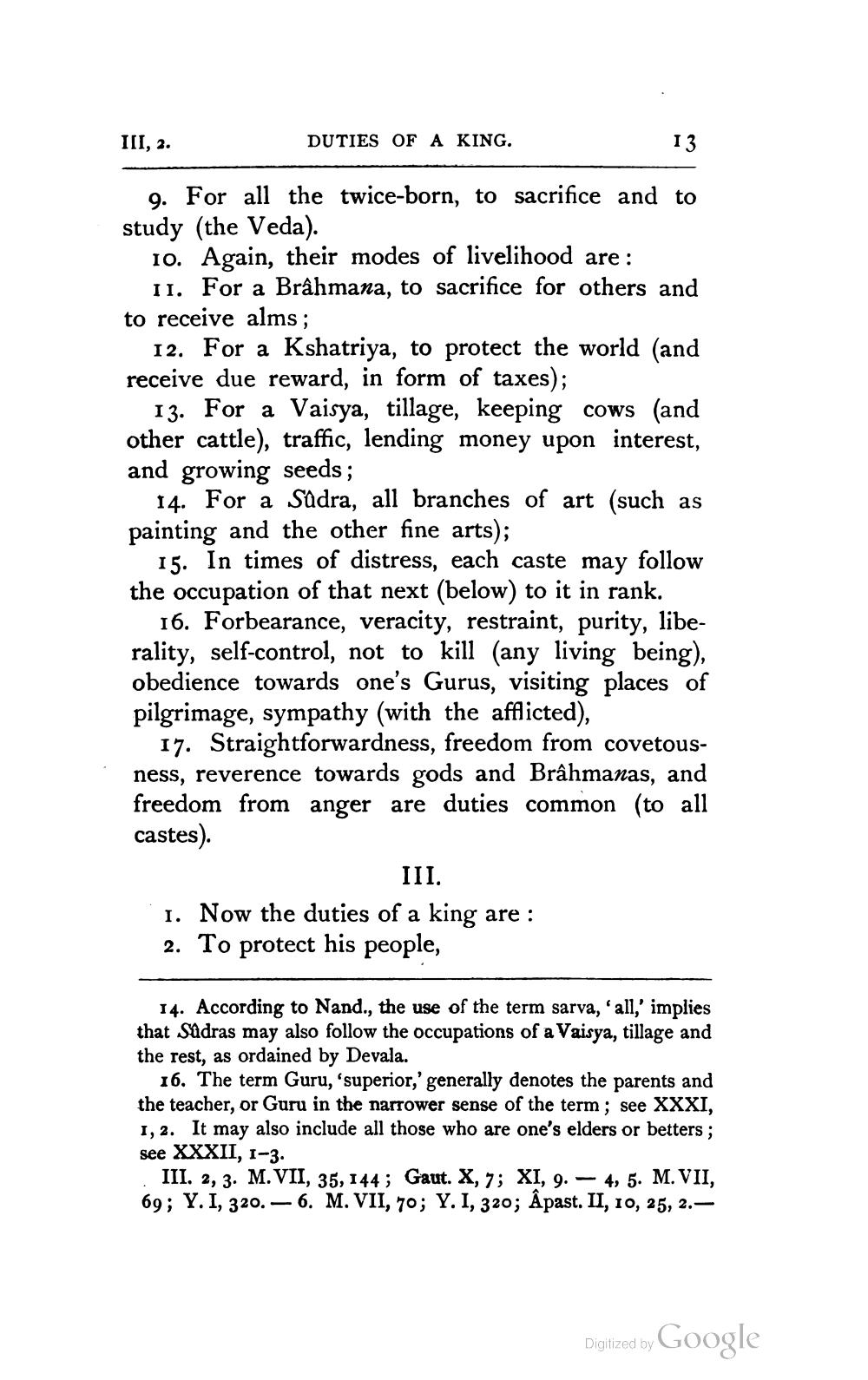________________
III, 2.
DUTIES OF A KING.
9. For all the twice-born, to sacrifice and to study (the Veda).
10. Again, their modes of livelihood are :
II. For a Brâhmana, to sacrifice for others and to receive alms;
12. For a Kshatriya, to protect the world (and receive due reward, in form of taxes);
13. For a Vaisya, tillage, keeping cows (and other cattle), traffic, lending money upon interest, and growing seeds;
14. For a Sadra, all branches of art (such as painting and the other fine arts);
15. In times of distress, each caste may follow the occupation of that next (below) to it in rank.
16. Forbearance, veracity, restraint, purity, liberality, self-control, not to kill (any living being), obedience towards one's Gurus, visiting places of pilgrimage, sympathy (with the afflicted),
17. Straightforwardness, freedom from covetousness, reverence towards gods and Brâhmanas, and freedom from anger are duties common (to all castes).
III.
1. Now the duties of a king are : 2. To protect his people,
14. According to Nand., the use of the term sarva, 'all' implies that Sadras may also follow the occupations of a Vaisya, tillage and the rest, as ordained by Devala.
16. The term Guru, 'superior,' generally denotes the parents and the teacher, or Guru in the narrower sense of the term; see XXXI, 1, 2. It may also include all those who are one's elders or betters; see XXXII, 1-3.
III. 2, 3. M. VII, 35, 144; Gaut. X, 7; XI, 9. — 4, 5. M. VII, 69; Y. I, 320. — 6. M. VII, 70; Y. I, 320; Apast. II, 10, 25, 2.
Digitized by
Digitized by Google




